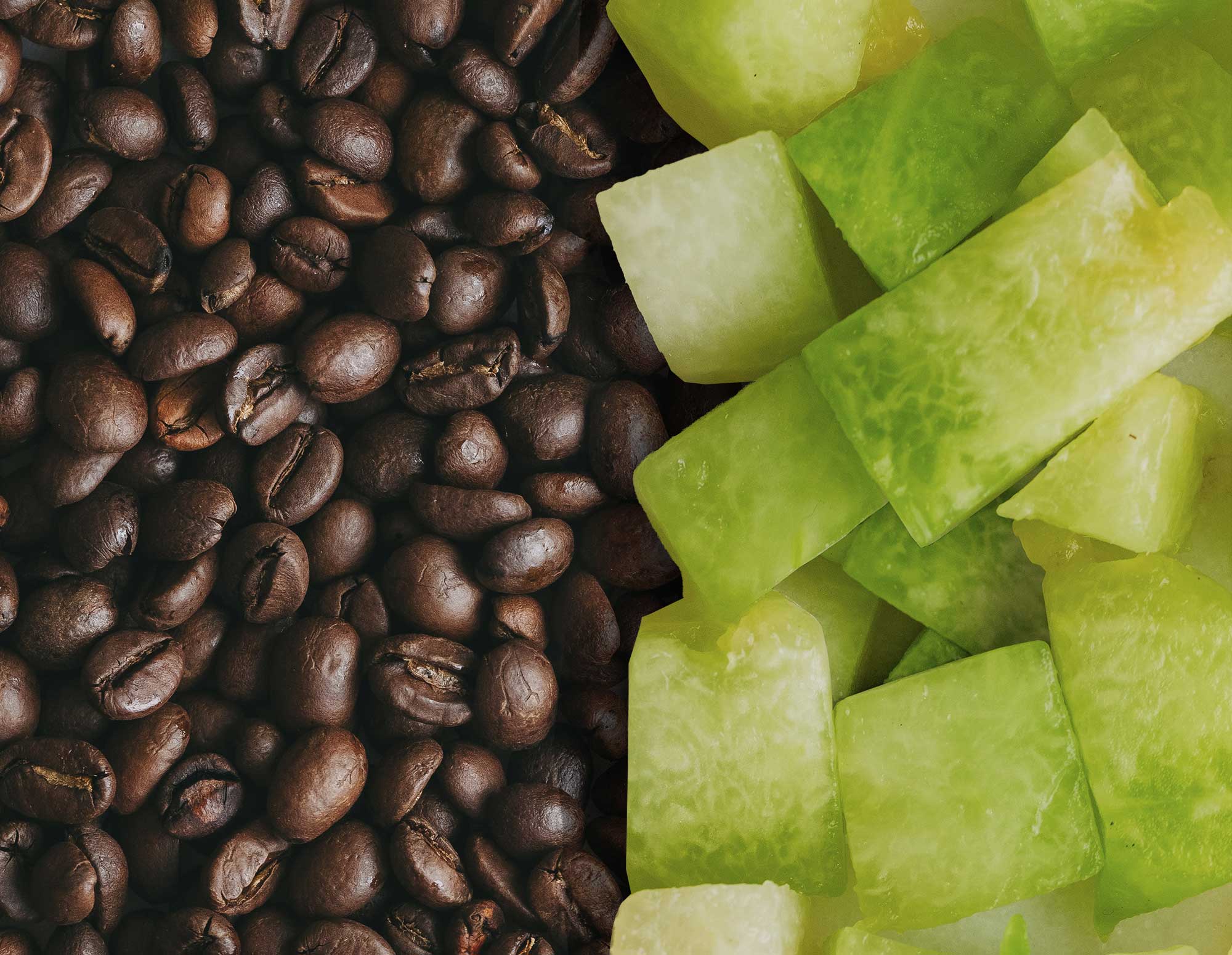What do cantaloupes have to do with organic coffee? Much more than you’d imagine. Nature has taught us that, despite not being edible, coffee grounds have everything you need to produce other food items. Organic cantaloupes are more proof that the circular economy really does bear fruit.
You finish your coffee, put the cup back on the saucer and go on with your life. Just like any other day – or so it seems. Your coffee passes into history, but the leftover grounds are a tagline for a new story. Every day, we separate around 300kg of grounds to give to the Quinta das Mélias, a certified organic farming company, started by Joaquim Alves. Here in Alcochete, nature’s magic starts happening when our coffee grounds are added to organic compost, creating a powerful natural fertiliser.
Several studies, over the years, have shown that, when mixed with other types of organic matter, coffee grounds are able to improve water retention and air circulation in soil. By helping to maintain ideal temperatures in a compost heap, they accelerate the decomposition process and significantly increase the levels of iron, phosphorus, potassium, magnesium and copper in the soil. Isn’t that just the perfect setting for planting organic cantaloupes?
Every week, Quinta das Mélias delivers between 300 and 400 kg of organic cantaloupes to us. In our kitchens, we cut them into pieces and put them in cups to serve to our customers for maximum freshness. After trying them, you’ll never look at your coffee in the same way again.
Producing organic cantaloupes using our organic coffee grounds is yet another circular economy initiative born at A Padaria Portuguesa. These coffee grounds are also used to produce oyster mushrooms, which we use in sandwiches and salads. We also use the orange peels left over from making our fresh fruit juices to make orange marmalade, which is also available in all our stores.


